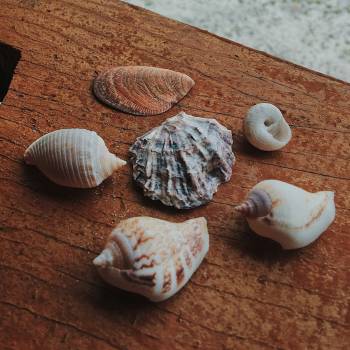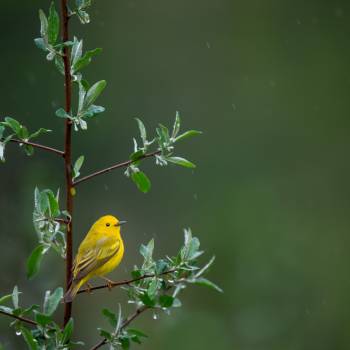بسم الله الرحمن الرحيم
There is a righteous man mentioned in the Qur’an, who was neither a Prophet, nor a companion of Rasulullah salla Allahu ‘alayhi wa sallam. However, he was honoured so much by Allah subhanahu wa ta'ala that a surah is named after him.
He was none other than Luqman, to whom Allah granted him hikmah (wisdom). Because of this blessing, he was exceptionally wise, and one of his enlightened advice was captured in the Qur’an for us to ponder and live by:
“{Ya bunayya | O my beloved son}! If it be (anything) equal to the weight of a grain of mustard seed, and though it is in a rock, or in the heavens or in the earth, Allah will bring it forth. Verily, Allah is {Lateef | Subtle}, {Khabeer | Well-Aware}.”
[Surah Luqman 31: 16]
This was an advice given to his son, in which Luqman began by saying: {Ya bunayya | O my beloved son}. There is a similar word — {ibni} — which means ‘my son’. However, {bunayya} is a term of endearment, of gentleness and love.
Even before we delve into the ayah, Luqman already taught us a very important matter — and that is when we approach our children, when we want to give them advice, it needs to come from a place of care, and mercy; and that our children are aware of our love towards them. Rasulullah salla Allahu ‘alayhi wa sallam said: “If Allah ‘azza wa jalla intends good for a household, He lets gentleness enter their home.” [Musnad Ahmad 23906 | Graded Sahih by Al-Albani]
Luqman wanted to advise his son that Allah is Ever-Watchful of all things, and that nothing — even the tiniest, minute detail — escapes His Knowledge, and he gave the following extraordinary parable:
"O my beloved son! If it be (anything) equal to the weight of a grain of mustard seed, and though it is in a rock…”
In the beginning of his advice, Luqman gave this vivid imagery. Imagine that we need to locate something the size of a tiny mustard seed (try googling its image, it’s really super tiny!) that has been buried inside a huge, colossal boulder. How would we go about it?
Well to begin, we need to know exactly in which boulder the seed is buried first, right? There are billions and billions of boulders on earth, the ones that are discovered, and the ones undiscovered. Are we going to destroy all these uncountable massive boulders into small pieces the size of a mustard seed, and then sift through these never-ending debris until we locate that one tiny seed?
Right off the bat, we know it’s already an impossible task!
But Luqman added another impossible angle to the parable.
“...or in the heavens or in the earth…”
That massive boulder, in which contained that tiny seed we’re looking for, isn’t necessarily *on* this earth. It could be somewhere in the ever-expanding galaxy, or further beyond — or even somewhere deep within the earth itself.
How is it possible for any human being to ever figure out that one specific boulder among the infinite number of boulders, what more to locate a tiny mustard seed in the vast expanse of the entire universe?
Now think of a secret sin that is locked somewhere, completely hidden from everyone. A sin that is so concealed, that a person thinks no one will ever find out about it.
The mustard seed is actually a parable of that sin.
It is a sin that a person commits, and he goes to great lengths to hide that sin, so much so that people around him — his parents, his family, his community — cannot even imagine him doing such a sin. Imagine a person committing a sin for 10, 20, 30 years, and his own family member would never, ever expect or imagine that from him. That’s how well the sin is hidden.
But suddenly, Luqman’s parable ends with the following:
“...Allah will bring it forth…”
Despite how perfect a person thinks that his / her sin is concealed, Allah will bring it forth easily, without any effort whatsoever on the Day of Judgement.
“...Verily, Allah is {Lateef | Subtle}, {Khabeer | Well-Aware}.”
Because He is Lateef, Khabeer.
What does Lateef mean? It means that Allah subhanahu wa ta'ala is Subtle and Precise. Allah has the precision to locate that sin, even if it is smaller than the size of a tiny mustard seed. And He ta’ala is Khabeer, Who knows even of the footsteps of an ant in the darkest of nights. He knows exactly what a person did, how he did it, when he did it, as well as the specific reason why he committed that sin.
In another surah, Allah subhanahu wa ta'ala says: “And He is with you (by His Knowledge) wherever you may be. And Allah is the All-Seer of what you do.” [Surah Al-Hadid 57 : 4]
Do you notice how different we behave if the CEO, or a renowned sheikh is in the same room with us? People drive differently when they notice a police car is parked nearby. When we recognize the presence of a higher power and authority, that knowledge changes our behaviour.
And here Allah says that He subhanahu wa ta'ala is with us (with His Knowledge) wherever we are, and has full view of what we’re doing. Even in the darkness of our rooms, we are never truly alone.
If we truly internalise this fact, the way we spend our time will change, the way we treat others will change, the website we browse will change, the phone numbers we dial will change, the content of our private messages will change, the TV shows we watch will change. Everything about us will change! If we truly understand and internalise this fact, there will necessarily be a change in our behaviour.
This was what Luqman wanted his son to know — that nothing ever escapes the Knowledge of Allah. And Allah loves this parable so much that He subhanahu wa ta'ala makes it a part of the Qur’an for us to remember and take heed.
We ask Allah to make us people of taqwa, who fear disobeying Him in public and in private. O Allah, make us those who fear and are shy of Your Sight upon us more than the sight of people upon us.
Your sister in Deen,
Aida Msr
 Aida Masuri Mustafa
Aida Masuri Mustafa 




